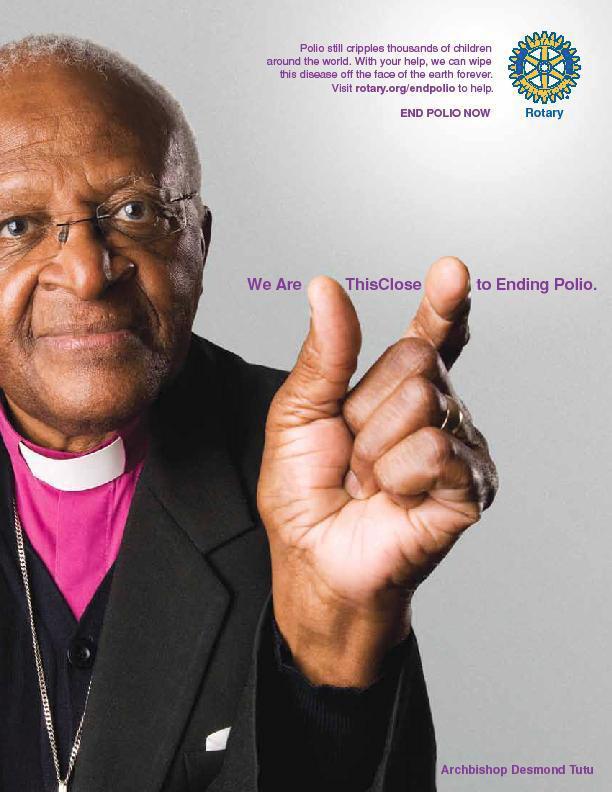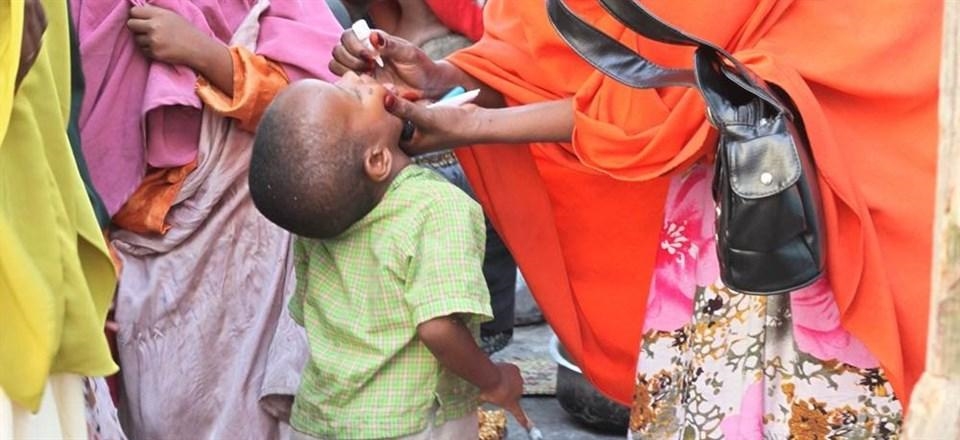We're This Close!
Join us as we bring community focus to Rotary's work on this global issue. Be a part of the billboard campaign to let our community know that we are a part of one of the most historically significant disease eradication efforts ever undertaken. For $250, you can be on a billboard. August 22nd 4:00 at Lamar Advertising for the photo shoot.
The final push to end polio is the largest and most complex disease eradication effort in history. As the Global Polio Eradication Initiative (GPEI) carries out the Polio Endgame and Eradication Strategic Plan, a six-year program to achieve a polio-free world by 2018, we know it won’t be easy. An editorial in the Washington Post on Monday and a recent NPR piece both draw attention to one of the major challenges we anticipate during this final push: outbreaks in polio-free countries. The outbreak currently happening in Somalia and Kenya, with 105 cases so far, is a sobering reminder of the tenacity of the virus, and that so long as polio exists anywhere, its spread is an ever-present risk.
The best way to stop such outbreaks is by interrupting polio transmission in the remaining endemic countries. Meanwhile, investing in strong immunization programs in known high-risk areas can and does prevent outbreaks in the first place. We’re committed to building systems that will do just that: by the end of 2014, half of GPEI’s field personnel time will be spent on improving immunization systems.
The GPEI benefits from a plan that ensures we can maintain an intense focus in the remaining endemic countries, Afghanistan, Nigeria, and Pakistan, even while managing a first-class outbreak response. . The Washington Post is correct to say that “the outbreak is not likely to derail the global campaign for eradication.” Resources to respond to outbreaks are already built into the Strategic Plan budget—nearly $50 million is budgeted for this purpose in 2013 alone, completely separate from the endemic country requirements. So long as the plan’s budget is fully funded (meaning that the $4 billion pledged at this April’s Global Vaccine Summit translate into actual funds), we are well down that path – we’re well-equipped to pursue endemic and outbreak priorities simultaneously.
The good news is that we’re better than ever at responding to outbreaks. Since 2011, only one has lasted longer than six months. In 2008, it took an average of 20 weeks to put a stop to a new outbreak; by 2011, that was whittled down to 12 weeks. The programme is well-equipped with effective tactics, tools and operational experience to stop outbreaks fast, with the caveat that the speed at which an outbreak can be stopped is related to the ability of countries to vaccinate children in zones of conflict and insecurity.
We know that challenges will arise on the road to polio eradication. So long as the world stays fully committed to traveling down that road, I know we’ll be successful.

